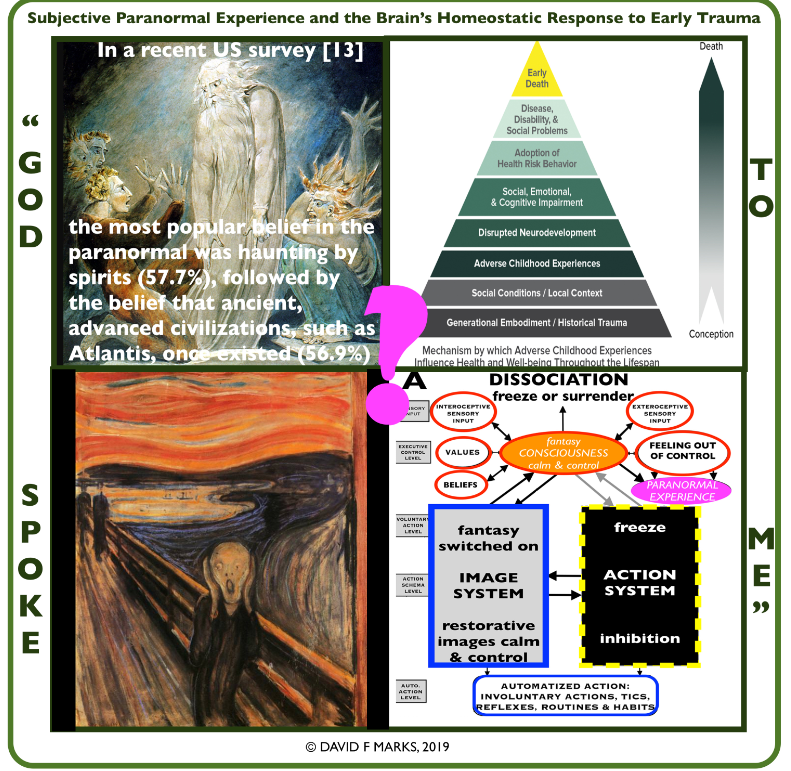Subjective paranormal experience (SPE) has been a notable part of the human historical narrative. Alleged miracles, telepathy, clairvoyance, precognition, witchcraft, spiritualism, monsters and ghosts have received a supernatural interpretation. The incidence and prevalence of reported SPE remains at high levels in all populations investigated to date. Previous research on SPE has focused on the cognitive and social factors that facilitate paranormal beliefs and experiences. I consider here developmental factors in the brain’s responses to trauma that appear to predispose certain individuals towards SPE. The theory draws upon the established mechanisms of dissociation and fantasy generation to describe and explain the origins of paranormal experience. The theory hypothesizes that childhood abuse and victimization trigger autonomic responses of dissociation, depersonalization and compartmentalization. Freezing and associated releases of fantasy serve as a survival strategy in the homeostatic regaining of safety and control. The predictions from the homeostasis theory are consistent with the findings of multiple studies and falsifying evidence has yet to be identified.

